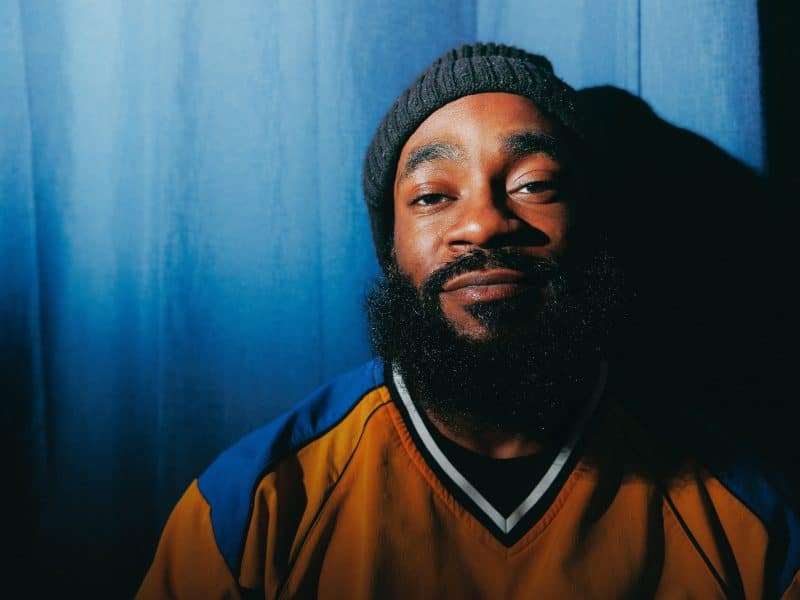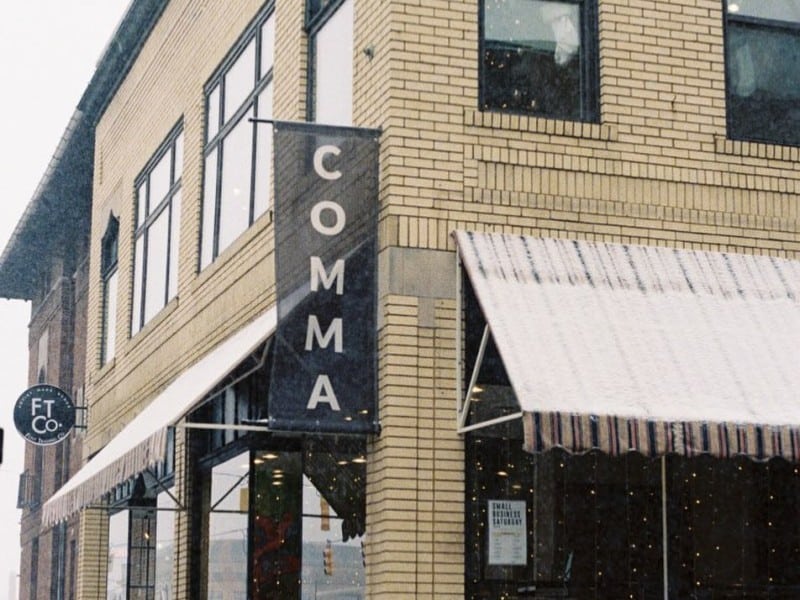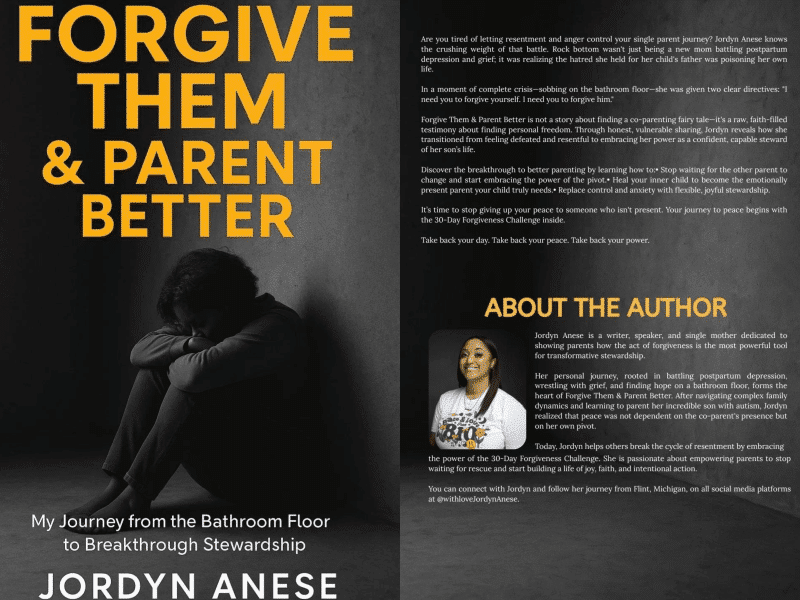The art of producing music, talent, and authenticity with OohDatsRudeBoi
With a resume that boasts an impressive array of credits and mentions from Bernard Terry, Cameron Tyler, Jada Ali, Furillostar to YN Jay, RudeBoi's work speaks for itself and provides opportunities and avenues for artist expansion and personal growth.
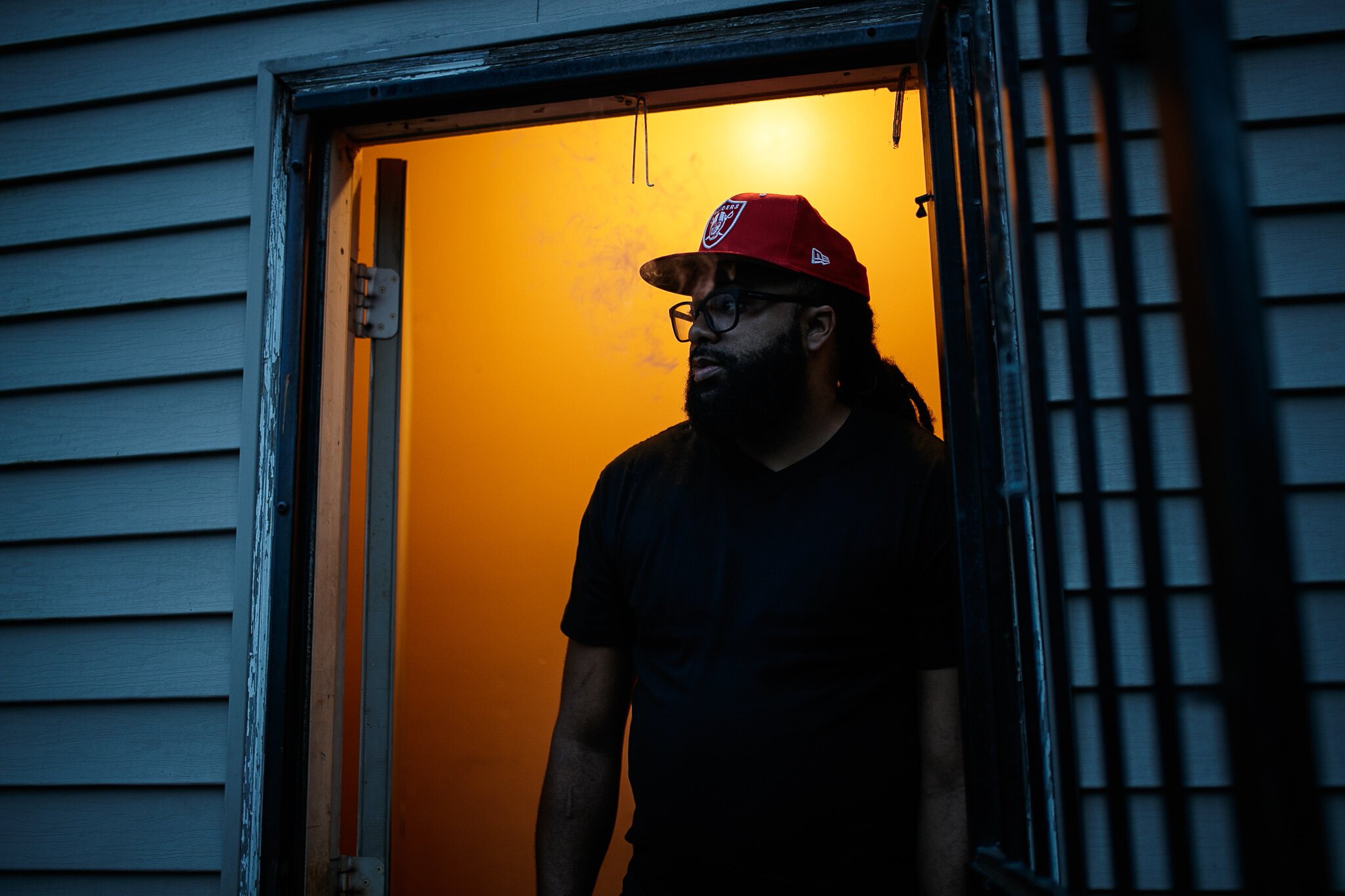
FLINT, Michigan –Twenty minutes have passed since I exited the recording booth and took my seat in the studio of producer, business owner, DJ, and Beecher native RudeBoi. His studio, built in his basement, with chairs, a table, a desk full of recording equipment, and a wall autographed by Flint’s past, present, and future stars, provides a space for vulnerability and authenticity. It’s a little after eleven at night, hours since our interview ended, as the mixture of my voice and his genius engineering pierce our ears. He rocks to the beat, humming the melody, pressing buttons, and clicking keys with ease and grace.
There’s a feeling that guides him to the sound he wants to create, and he’s focused on producing it. And yet, the vibe is smooth and relaxed, heightened by the ensuing darkness that’s only disturbed by the singular source of light—his computer screen. It is in one part due to my chosen lo-fi Hip Hop beat, the lingering effects of Modelo beers, shots of 1800, and two pearled blunts. On the other, the intimacy created is purposeful—intentional energy fostered by RudeBoi to manifest the best from the artists he works with and the music composed. But, at its core, this studio reflects RudeBoi himself: a man that’s found freedom and purpose through making music.
“I’ve always wanted a building, but this [studio] is closed—intimate—and people get that misconstrued. Being that way, it’s me, the artist, and maybe one or two other people. Here, you come, get straight to work, and it gives you time to sit down and develop your craft,” RudeBoi says, leaning forward in his chair. “If you are passionate and I see that you are trying, imma help you. If you wanna be a rapper, you’ll come here and start, and I’ll get you together. I love artist development.”
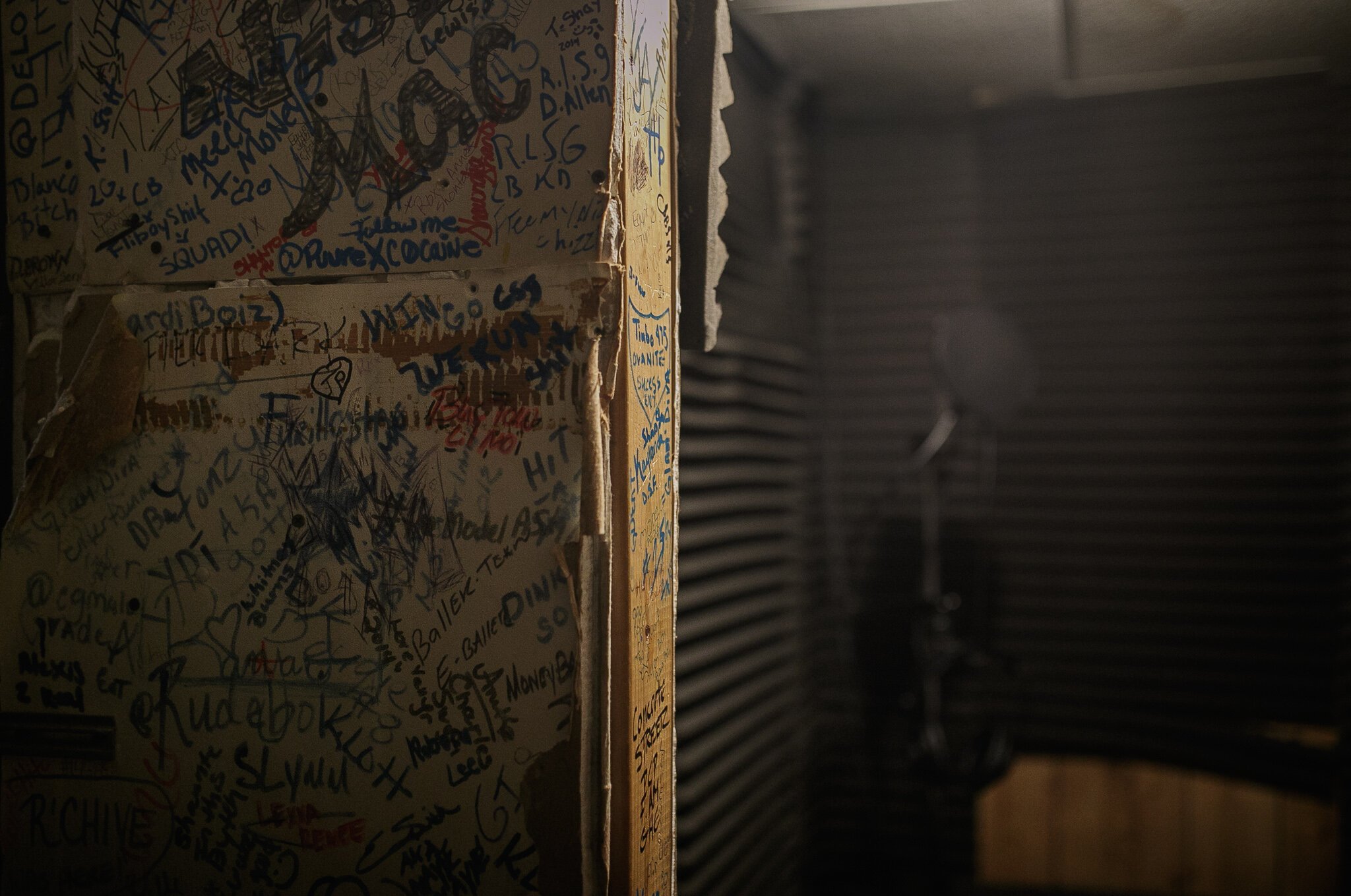
Possessing a calm temperament and a soft-spoken tone of voice, RudeBoi has always been engrossed in music mainly through his father—a DJ himself. He watched his father until he was old enough to tag along and help set up at different events and witnessed the musical transition from “vinyl, to cassette tapes, to CDs to MP3s over the last 31 years of my life.” Music followed him through middle school concert band and shifted to writing raps, producing beats and songs with his classmates. Over time he developed a passion for it, citing that it “made me feel good, and I’m happy when I’m working on music,” and every beat created possessed a different way for “me to express myself” and what was going on in his life.
“People have journals, I got songs or beats,” he says, rubbing his hands through his beard. “I used to be all the time with it, but the way I create now, you’ll feel how I feel through my beat or my verse. It all depends on where I’m at in life.”
That, in turn, is what drives his relationships with the people who arrive in this studio. He tells me story after story of the many people that appear with dreams and aspirations of being in the music and entertainment industry. It is a lane filled with ups and downs—like recalling moments of bad contracts, learning and navigating business endeavors, building confidence, and working with rapper Lil Boosie—that are vital lessons he embeds within his studio sessions. He tells me with a pensive look that not everyone who comes to the studio is ready and able to work on music. Some look at it as a fad, a way to receive validation, but in those moments and others, RudeBoi shifts his gears from music producer to mentor and counselor. With a resume that boasts an impressive array of credits and mentions from Bernard Terry, Cameron Tyler, Jada Ali, Furillostar to YN Jay, his work speaks for itself and provides opportunities and avenues for artist expansion and personal growth.
![“I spent countless hours up, and I drink, so I drank, sitting here Googling, on YouTube, and listening to [other] producers. How I turned it around was [because] I worked. I buried myself in this."](https://d1mvjrzt5d5pjl.cloudfront.net/wp-content/uploads/2025/07/28143728/rudeboi1.jpeg)
“If that artist has an idea, it’s my job to try and bring that idea to life. I work with many artists, and I was probably one of the first stops they made on their way to wherever they were going. It’s a process with recording, and [some] artists come through to get a quick hour with a whole crew,” he says, shaking his head. “You can’t even get into your zone because you can’t define yourself as an artist. Now you gotta come out and question people. In situations like that, I ask, ‘do you feel like this was a successful session for you?’ We sit down in this basement, and I drop game on them.”
His soothing presence and ability to guide those that come to him didn’t come without struggle, though. Like so many others before him, marriage and relationships haven’t been easy. RudeBoi found himself divorced after five years and co-parenting his now 10-year-old son, reflecting that he “invested a lot more time into [music] than I invested into my marriage.” His troubles expanded by not being credited for his work multiple times and navigating ASCAP and BMI licenses and royalties. That, and being affiliated with a company that signed a “work for hire” contract, which meant “we got paid for that work [but] we don’t get no royalties and there was nothing I could do about it.” He spent a year hitting walls and making mistakes but understood that doing nothing could have effectively ended his dreams, killed his spirit, and it did for a time before he took a different mindset.
“I spent countless hours up, and I drink, so I drank, sitting here Googling, on YouTube, and listening to [other] producers. How I turned it around was [because] I worked. I buried myself in this. It’s part of the game. It just happens,” RudeBoi says with a grin, understanding he’s a better and wiser man because of it. “I’m a timing type of person. S*** happens for a reason at given times, and everybody’s going to have their season—you gotta be patient and keep doing what you’re doing. But it’s a story that I can tell, and I’m blessed to be able to tell it.”
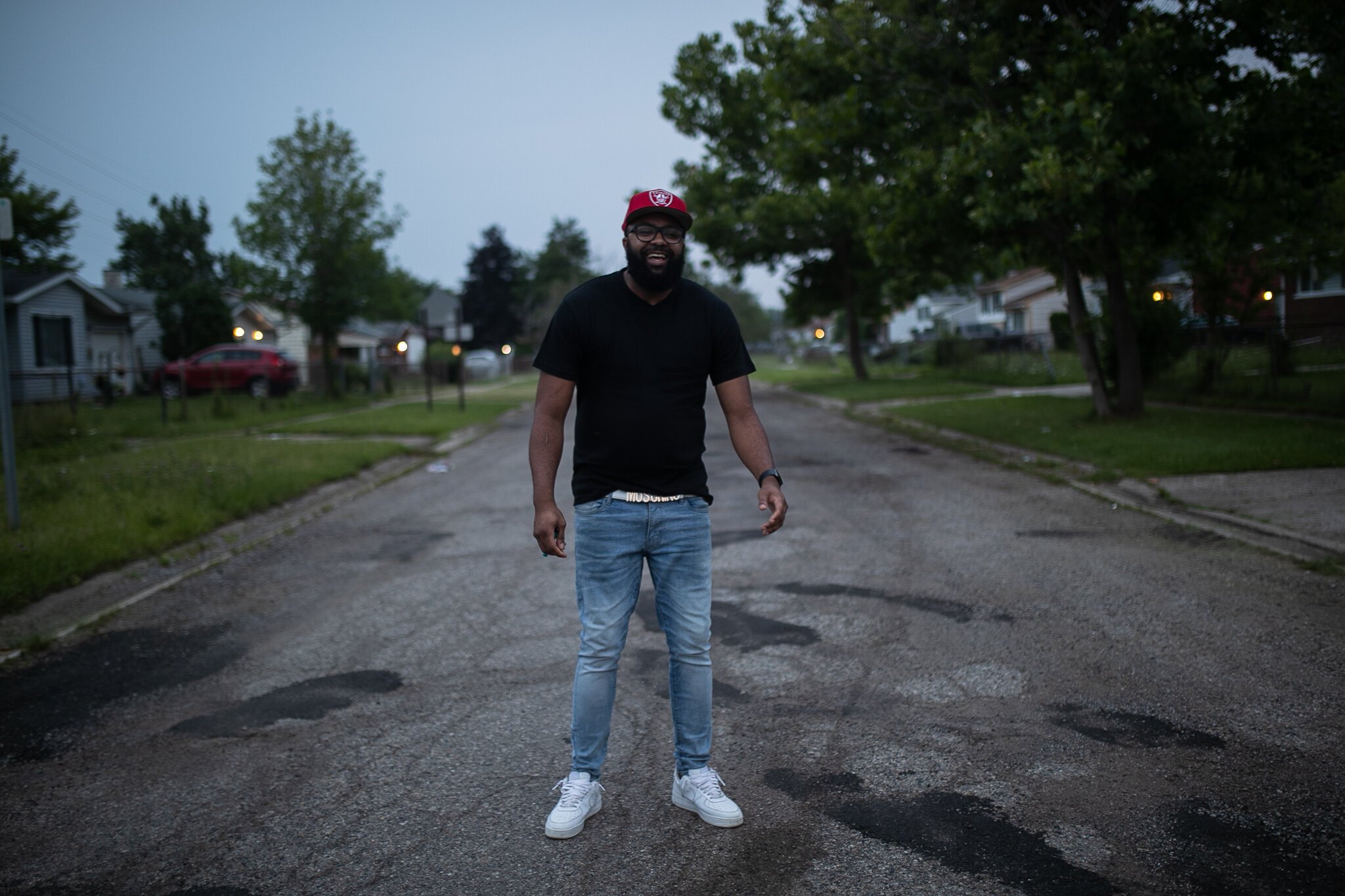
Now, RudeBoi sits in his studio seasoned by the experiences and humbled by the music he gets to create every day. He isn’t on social media boasting about his accomplishments or talking about his experiences as a sought-after DJ, playing in various nightclubs, quinceaneras, weddings, and other events. Instead, he chooses to focus on what’s important: his passion and love for music. It’s a feeling he wishes to share with those who journey into his studio to bare their soul in pursuit of their dreams. And a path that he feels strongly positions him in the background, and one, I say, coming to the closing of our conversation, solidifies him as a critical component in an artist’s first step on a long journey. But after all of that, I wondered why he still does it, and his answer was simple.
“The reason why I never really lost my passion for this,” RudeBoi says with a smile, “is because I love it.”
To find out more about OohDatsRudeBoi, book studio sessions, purchase beats or shop at his businesses, you can find him on Facebook and Instagram.


